Judgment and Perfection
The past few weeks, I’ve been struck by how often judgement and perfection go together. And, here’s the kicker – it’s my judgment that drives my perfection, not someone else’s judgment of me. What?! Back up the truck. Let’s explore this crazy little idea and then give ourselves a lot more freedom to simply enjoy being who we are.
Let’s start with a scenario. Someone pops over to your house unexpectedly. You casually try to clean up the counter to make it look like it’s just a fluke the person visiting you is seeing your house, which in all honesty, is your normal state of chaos. You apologize and make jokes about the kid’s backpacks magically unloading materials on top of the counter each night.
You feel embarrassed and want to crawl into a hole, even though you know that person’s home looks just the same. You feel judged, but ironically, it’s not the person stepping into your home who is judging you – it’s you judging you based on what you think the other person expects.
Now flip the scenario. You walk into someone’s house unexpectedly. Do you expect perfection? No, you realize their house looks just like yours on a weekday evening. You don’t really think twice (well perhaps you do if there’s underwear hanging from the light fixtures or if someone’s unaddressed lunch has clearly started a fascinating science experiment), but really, you don’t think twice under normal circumstances.
If we don’t judge others, and even feel relieved when their home is chaotic because it makes us feel normal, why do we allow ourselves to judge us?
Brene Brown’s work on shame and vulnerability comes to mind. In her book, Daring Greatly, she discusses how naming our shame frees us to be vulnerable. I think that’s why our social media posts about our “mom of the year” moments resonate with so many.
In our workplaces, this vulnerability becomes a key element of trust on our teams. When we aren’t vulnerable, we don’t open doors for our teams to trust us. Patrick Lencioni defines trust as vulnerability-based trust, a type of trust that allows us to admit our weaknesses, be candid and transparent, and make mistakes. This foundational team trust sets us up for other healthy team behaviors.
And if our “mom of the year” moments resonate with others, I’m fairly confident our “employee of the day” moments will also produce a sense of relief and laughter.
How do we get past our own judgment of ourselves and our sense of perfection? That’s the million dollar question. For me, I’ve had to learn:
1) People will like me regardless of if I’m perfect or not. And in reality, they like me better when I’m not perfect because I’m not as intimidating.
2) It’s okay to laugh at yourself. It’s even fun to laugh at yourself. Invite others to laugh with you because there isn’t enough laughter in the world.
3) The world will not end if things aren’t perfect. Truly. They won’t. In addition, when things don’t have to be perfect, you can be free to live in the moment, not worried by your own perfection and judgment.
This week, challenge yourself to see the moments when you judge yourself, then ask, “Is this my perfectionistic expectation of me? Do I honestly believe the other person is judging me or am I too busy judging myself to notice the other person doesn’t really care?”
Enjoy the freedom of being you, all of you. Goofy, unperfect parts and all.
Keynote speaker, trainer, and consultant, Sarah Gibson, helps organizations leverage the power of communication, teamwork and diversity to improve engagement and transform teams. To buy her book or inquire about her speaking programs, please visit www.sarahjgibson.com.



